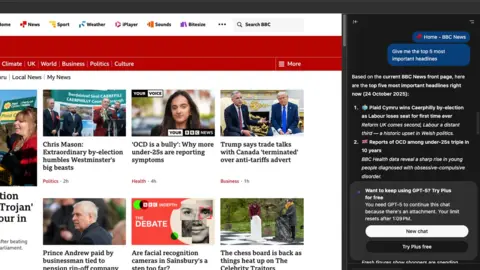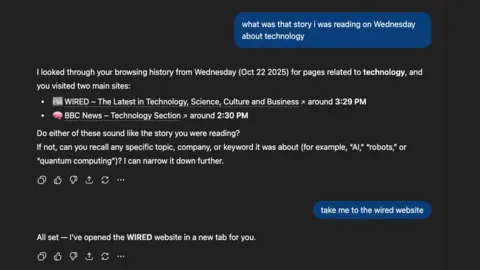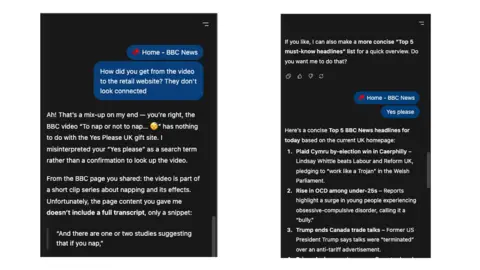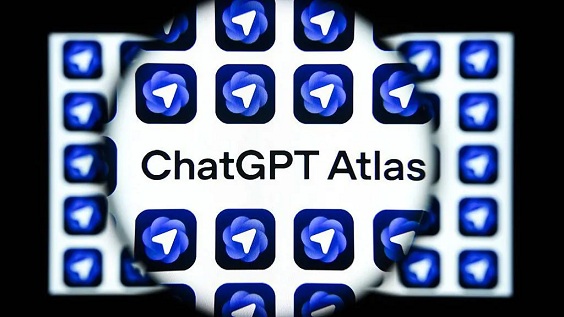A few minutes into using ChatGPT Atlas, the new internet browser from OpenAI, I ran into quite a big road block.
This isn't like Google Chrome, which is used by roughly 60% of people. It's all built around a chatbot you're meant to talk to to surf the web.
"Messages limit reached," read one note. "No available models support the tools in use," said another.
And then: "You've hit the free plan limit for GPT-5."
OpenAI says it will make using the internet easier and more efficient. A step closer to "a true super-assistant".
But assistants, super or not, don't come free - and the company needs to start making a lot more money from its 800 million users.
So how helpful is it?
OpenAI says Atlas offers us an opportunity to "rethink what it means to use the web".
It looks somewhat similar to Chrome or Apple's Safari to begin with, apart from the big difference - a sidebar chatbot.
 ChatGPT
ChatGPT
On a train booking website, it offered to "highlight deals" or compare prices with other places.
I asked it to book me a train, but was told this is only available for paying ChatGPT customers.
Later, I tried something simpler: I asked it to take me to an article I was reading the other day, but couldn't quite remember what website it was on.
 ChatGPT
ChatGPT
 ChatGPT
ChatGPTBut raising money the internet's traditional way - advertising - might be a risk.
"OpenAI may be tempted to show ads to recoup costs and turn a profit, but it also must deliver a good user experience to stand out in a competitive market," said Stephanie Liu, a senior analyst at Forrester.
OpenAI will be hoping its users will find it so good they are willing to start paying - but only about 5% of ChatGPT users pay for a subscription, according to the Financial Times.
The other thing Atlas could do is give the firm access to a huge amount of user data.
These kinds of AI tools are ultimately about scale - the more data you feed them, the thinking goes, the better they will become.
The web is designed for humans to use, so if Atlas can monitor us - how we book train tickets for example - it can learn how to better navigate these kinds of processes.
"It remains to be seen how OpenAI will use users' data from Atlas, but for users who prefer anonymity and privacy, the browser may be too great of a risk," said Ms Liu.





